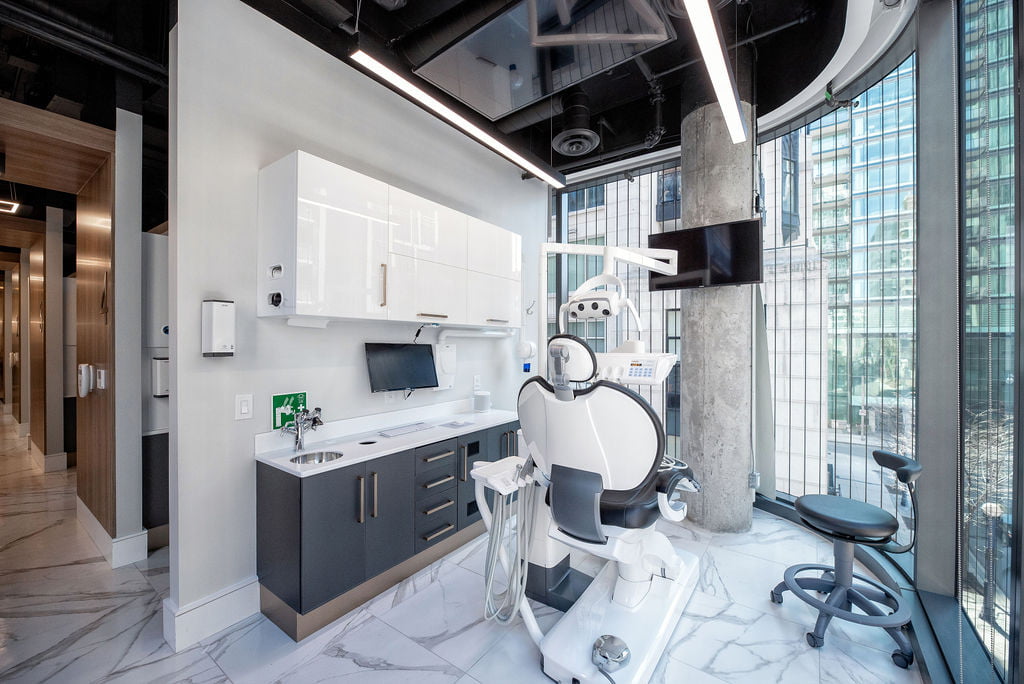Dental implants are prosthesis devices that are surgically placed into your jawbone and act as lost tooth replacements. Dental implants provide a strong foundation for removable or fixed dental appliances and are considered to be an effective way to repair teeth functionality and appearance. Dental implants are usually suggested for patients who have lost or extracted teeth that cannot be fixed by corrective surgery. Dental implants feel and function just like natural teeth and generally last longer than other dental alternatives. People who have the following dental conditions can opt for dental implants in order to improve their chewing abilities:
- One or more missing or extracted teeth
- Sufficient bone density
- Good oral health
- Minimal bruxism
- Healthy gums
- Well-maintained oral hygiene
Dental implants prove to be the best and safest choice for people who have one or more missing teeth but either cannot or do not want to get bridges, dentures, or crowns. Moreover, dental implants do not affect visual aesthetics as they look just like natural teeth.
Having dental implants will not make you self-conscious as they enable people to chew, talk, and laugh with freedom. So, if you are looking for dental appliances in order to get your missing tooth replaced, dental implants are the best solution available for you. Moreover, it is essential to replace a lost tooth as soon as possible, as the consequences of removing/losing a tooth and not getting it replaced can grow into much larger problems as time goes on.

1. Dental Implants Restore the Functionality of Lost Teeth
Dental implants prove to be a great way to restore lost bone density, and they effectively replace lost or missing teeth. Dental implants allow people to speak and chew just like the original teeth while imparting them a natural-looking appearance. The placement of dental implants is a widely preferred solution that lasts for prolonged periods without causing any issues and requires little maintenance.
2. Dental Implants Behave Just like the Original Tooth
Dental implants are considered as strong as original teeth. They fuse with the jawbone and form a tough bond with it, similar to the natural tooth root. Moreover, implants do not affect speech as they don’t slip or slide from their position, nor do they limit food options and enable a person to eat anything he wants. An individual implant that replaces a single tooth looks indistinguishable from the natural tooth and is considered to be the best option for restoring the form and function of extracted or lost teeth.
3. Dental Implants Provide a Biological Connection to the Jawbone
The jawbone and the dental implant have a symbiotic relationship because dental implants restore the functionality of the tooth’s root and provide stimulation to the jaw bone when a person chews, resulting in the regeneration of cells needed to preserve bone density. Dental implants are surgically placed in the jawbone, where they serve as the roots of missing teeth because the titanium in the implants fuses with the jawbone; the implants do not slip or cause bone damage the way fixed dentures or bridgework might.
4. Dental Implants Keep the Adjacent Teeth Stable
The gap left by a missing or extracted tooth can cause the adjacent teeth to drift apart or shift position, which can destabilise them. Dental implants effectively keep the adjacent teeth stable by preventing the bone loss that normally occurs underneath missing teeth. By preserving bone density, the stability of surrounding natural teeth is maintained, and so are the shape and size of the jaw.
5. Dental Implants Significantly Prevent Facial Sagging and Premature Ageing
When lost tooth roots are not replaced for extended periods, the face usually begins to sag as bone mass deteriorates. Dental implants can prevent this from happening by stabilising the facial structure. By filling in the empty spaces left by lost teeth, implants can keep the jaw and teeth in proper alignment.
Over time, if missing teeth are not replaced, the jawbone in and around the area of the missing teeth will lose its density and will eventually shrink. After having dental implants, people tend to look more youthful and confident because of an intact facial structure with a firmer face that has less noticeable fine lines or wrinkles.
6. Dental Implants Last Longer than Any Other Dental Alternative
Traditional tooth replacements like removable dentures or crowns need to be replaced or repaired every five to ten years. On the other hand, implant-retained replacement teeth last relatively much longer than these dental alternatives without causing any oral complications. Typically, dental implants can last for more than twenty years with good oral hygiene routines. Some patients can even sustain their implant-supported prosthetic teeth for the rest of their lives with proper care and maintenance.
FAQS
WHAT ARE THE APPROXIMATE COSTS OF DENTAL IMPLANTS?
The estimated costs of dental implants are inconsistent and vary greatly depending on various factors such as the number of replacements, the type or quality of implants, the position of lost teeth, and the region of patients. However, on average dental implants can cost you around $4000 to $20000 per tooth.
HOW LONG CAN A PERSON GO WITHOUT GETTING DENTAL IMPLANTS?
It is really necessary to replace the lost or missing tooth as soon as possible in order to avoid severe oral consequences. If a tooth is missing for more than 12 months with no implant put in its place, bone loss is likely to occur, and the need for other procedures like bone graft and sinus lift will arise as the surrounding gap will start to slide or shift.
Moreover, after the extraction of teeth, dentists usually wait two or three months for the placement of implants while the waiting period allows the gums to heal. That’s why you should also not wait more than two to three months for getting your lost or missing teeth replaced.
WHAT IS THE RIGHT AGE TO GET DENTAL IMPLANTS?
The minimum age to get dental implants is nearly around 18 years. Because before a patient can receive a dental implant, he must have a fully developed jaw which typically does not happen until the late teens. Therefore, dentists rarely perform dental implant procedures on people younger than 18 years.



